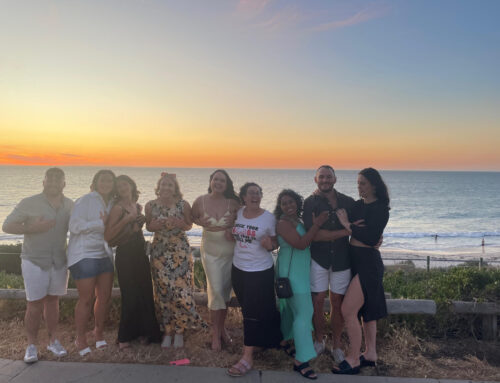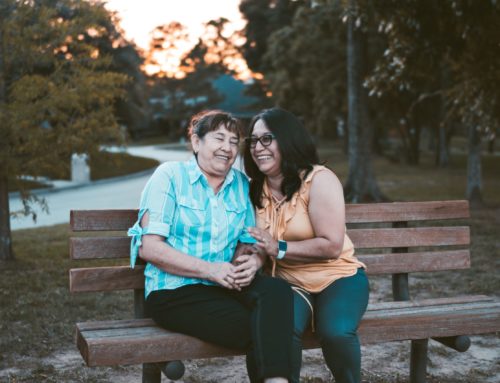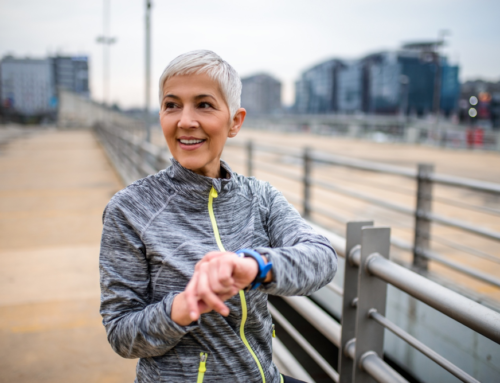The feel-good factor of spending time with people we love doing things we enjoy is increasingly being recognised by doctors as an important piece in the health care puzzle.
While medical interventions are essential, especially for people with chronic illness, there are also a range of health benefits to be gained from non-medical interventions, such as connecting with friends and spending time outdoors.
On 30 July it’s the UN’s International Day of Friendship and to recognise the importance of human connection in overall health this week we’re taking a close look at Social Prescription to learn more about the opportunities and benefits of this holistic approach to care.
What is social prescription?
In a nutshell, social prescription is when a healthcare professional suggests a non-medical intervention to a patient. Depending on the circumstances, this could be a regular walk with a close friend, membership to a Men’s Shed, or participation in a local bush care group.
We’ve all experienced the overall sense of wellbeing that comes from participating in an activity that is meaningful to us, and a social prescription aims to maximise the potential benefits to be gained from these activities by incorporating them into a patient’s treatment plan.
Valion Health Managing Director Michael Marthick says social prescriptions work by addressing some of the non-medical factors that impact an individual’s health and wellbeing.
“These non-medical factors, sometimes called the social determinants of health, include socioeconomic position, employment status, empowerment and social support.
“We know that building links with local communities, through social prescriptions, can positively impact less visible areas of health and wellbeing such as loneliness and feelings of empowerment,” says Michael.
Who benefits from social prescribing?
At Valion Health we ask all participants about the social supports available to them, but a recent roundtable by the Royal Australian College of General Practitioners found that social prescription is especially effective for:
- people who need support to manage their mental health and wellbeing
- those with chronic health conditions and people suffering from multiple conditions
- people who are socially isolated for any reason
- older people experiencing loneliness, major life changes and/or illness
- children in the first 1000 days of life to reduce the potential for issues in later life.
While a one-size all fits approach to social prescription won’t meet the varying needs of the people on the list above, what we do know is that health care professionals are uniquely well positioned to link people with organisations that can support them.
“As part of each participant’s care plan at Valion Health we include a ‘prescription’ to activities, services and organisations that can provide non-medical services. This includes art groups, sporting and recreation activities and volunteering options.
“Sometimes all people need is a little support to navigate the system, and we provide that support,” says Michael.
What does a social prescription look like?
Social prescriptions vary according to the unique needs and circumstances of the patient and in making a referral health care providers consider a range of factors.
Some of the prescriptions suggested to Valion Health participants include referral to:
- cookery classes
- bush care groups
- group exercise such as yoga
- weekly health walks
- coffee and cake catch ups
- art/ceramics classes
- volunteer organisations across a variety of areas.
Michael says an important predictor of success when referring participants to an activity or group is for healthcare providers to ensure it is meaningful to them, readily available locally or online, and within their budget.
“It’s a simple formula but making things easy to access and interesting increases the appeal,” says Michael.
There’s a growing body evidence to suggest that social prescriptions positively impact on health and wellbeing, and this makes good sense, because generally speaking, doing things we enjoy makes us feel happy and more connected with our community.
Social prescriptions can also boost people’s sense of engagement in their health care journey, by providing an opportunity for them to proactively take charge of their own health outcomes.
“Social prescribing has the power to impact health and wellbeing in an enormous way,” says Michael.
So, in the lead up to International Day of Friendship, maybe now is the perfect time to pull out your phone and make a time to catch up with that friend you haven’t seen in a while, it will likely make you both feel great!
Further Information (Sydney Focused)
Financial assistance
https://www.salvationarmy.org.au/need-help/financial-assistance/
https://services.dffh.vic.gov.au/concessions-and-benefits
https://moneysmart.gov.au/family-and-relationships/dealing-with-illness
https://www.financialcounsellingaustralia.org.au/
Centrelink, phone on 13 27 17
Support services
https://www.servicesaustralia.gov.au/
Search over 400,000 support services https://askizzy.org.au/
Food assistance
https://www.ozharvest.org/food/receive-food-individuals/
Wellbeing and homelessness https://www.redcross.org.au/services/
Local council website includes links to libraries, parks, gyms, community gardens, community centres, eg https://www.cityofsydney.nsw.gov.au/places
Community centres – e.g affordable fitness classes https://whatson.cityofsydney.nsw.gov.au/events/gentle-fitness-class
Gardening clubs – e.g working bees, gardening groups https://www.cityofsydney.nsw.gov.au/community-gardens/sydney-city-farm
Creative arts – e.g school holiday activities, ceramics, jewellery making, printmaking
https://www.cityofsydney.nsw.gov.au/community-centres/pine-street-creative-arts-centre
Local library – e.g Rhymetime and story time for families of 0-2 year olds https://www.cityofsydney.nsw.gov.au/talks-courses-workshops/library-events-and-workshops
Local art galleries, museums – e.g Art and Family programs, Art and Dementia programs e.g.
https://www.mca.com.au/learn/art-dementia/
Volunteering / Rotary / Lions clubs – e.g involvement in committees, projects e.g.
https://sydneyrotary.com/get-involved/
Local religious place of gathering – e.g choir
https://stmaryscathedral.org.au/music/st-marys-singers/
Virtual Care with Valion Health
Valion Health’s Mental Health Coaching Program is tailored to help participants to connect the dots to stay strong, resilient and motivated.
Our experienced health coaches work with participants to boost confidence and provide support to enable them to identify and build on behaviours that make them feel better.
Importantly, our expert team teaches participants how to implement these behaviours on a regular basis, supporting a foundation for sustained improvement.
Valion Health’s Mental Health Coaching Program is conducted remotely, giving participants access to the best care, no matter where they live.



